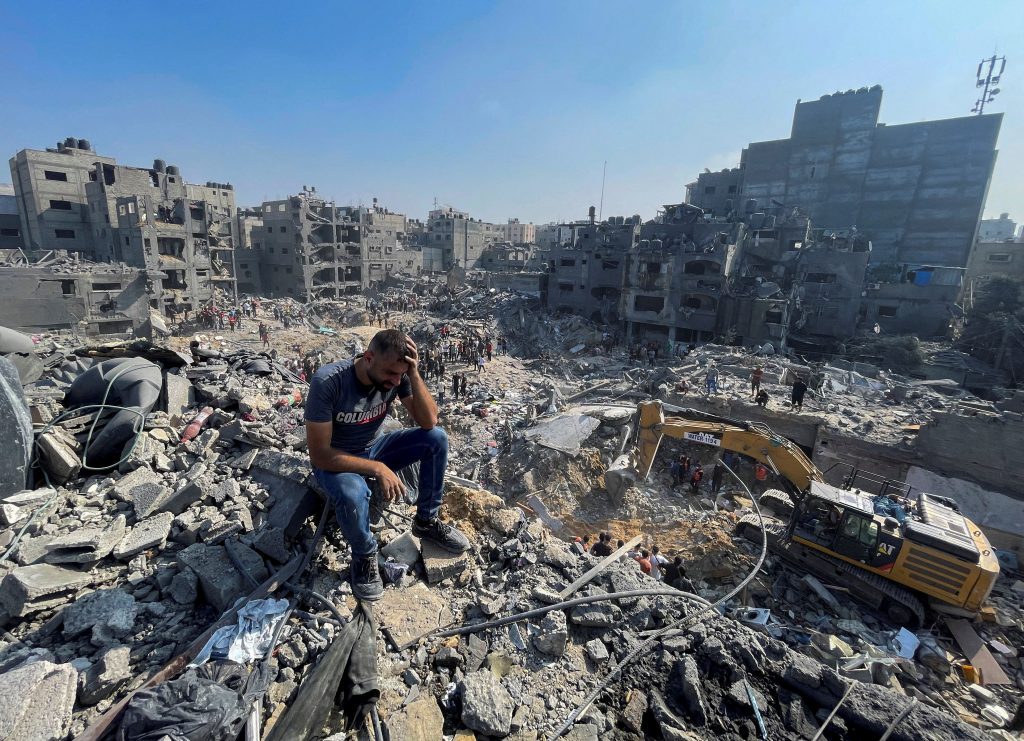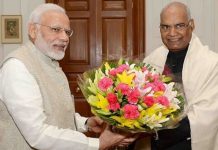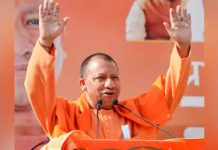
As Israel closes in on Gaza, Saudi Crown Prince Mohammed bin Salman, who hosted an Arab-Islamic summit, has called for an immediate end to the hostilities in Gaza while rejecting Israel’s bid to dub action against Palestinians as ‘self-defence.’
The world witnessed the medieval concept of “revenge” or retribution, when even during a four-hour pause in the Israeli offensive in Gaza on October 11, a hospital in Gaza, Al-Shifa, was bombed killing more than two dozen patients, including young children, on the spot, and scores were severely wounded. Yet, there is little outcry in the UN and other world organizations on the large scale civilian deaths in this ongoing Israel-Hamas War.
It is an unprecedented human tragedy of nearly the past half-a-century. The heart-rending conflict, which began on the morning of October 7 with the Hamas terrorists invading Israel killing more than 1300 civilians and kidnapping a large number of hostages, appears to be in the final stage with Israeli forces gearing up to re-occupy Gaza. The death toll of civilians in Gaza comprising bedridden patients, old men, women and children is already more than 12,000. The area, which had a huge civilian population estimated to be a few million just before October, would soon be giving a deserted look of a large graveyard.
Amidst these depressing developments, Saudi Crown Prince and country’s PM Mohammed bin Salman (MBS) hosted an Arab-Islamic summit on November 11, which was expected to usher in immediate ceasefire in this ongoing conflict. MBS has not only called for an immediate end to the hostilities in Gaza, he has also rejected Israel’s bid to dub action against Palestinians as “self-defence”. He also called for the release of all captives and prisoners.
Interestingly, MBS has ensured the presence of Palestinian Authority President Mahmoud Abbas during the summit. He, however, kindled hope for an early peace in the region by not inviting the top Hamas leaders, already branded as terrorists. They include Ismail Haniyeh, Yahya Sinwar, Mohammed Deif and Marwan Issa. It may be noted that Ismail Haniyeh had rejected the 2004 Oslo Accord recognizing Israel as a nation, and Israel had recognized Palestine as a state. It led to the election of Abbas as the president of Palestinian Authority.
Ismail Haniyeh, who had revolted against Abbas got killed hundreds of Palestinians in Gaza to form a separate new administration, was not invited to the summit. It means Abbas would now be playing the lead role in the restoration of the peace. Qatar’s Emir Sheikh Tamim bin Hamad Al Thani’s statement that “for how long the international community will treat Israel as if it is above international law,” did not impress the summit. He is known for sheltering the Hamas leadership.
A Joint Front
The Arab League and the Organization of Islamic Conference (OIC) are holding a joint conference for forming an alliance against Israeli aggression. According to Saudi Arabia’s Ministry of Foreign Affairs, it was being held “in response to the exceptional circumstances taking place in the Palestinian Gaza Strip as countries feel the need to unify efforts and come out with a unified collective position”.
The OIC includes member states from across the Islamic world, including the Palestinian territories’ neighbours Egypt and Jordan, Lebanon, Turkey and Iraq. Abdel Fattah el-Sisi, the president of Egypt, emphasised that the policy of “collective punishment” by killing, siege and forcible transfer, is unacceptable. He further stated that “this cannot be interpreted as self-defence and must be stopped immediately”.
In spite of Iranian President Ebrahim Raisi’s warnings that the scope of war would be expanding, the mood in the summit was for rapprochement. In spite of his visit to Riyadh, first time in 11 years of an Iranian president’s visit, he indulged in his rhetoric that “Islamic governments should designate the army of the occupying and aggressor regime [Israel] as a terrorist organisation”.
India-US Talks
Amid the ongoing West Asia crisis, the two and two meet between India’s Defence Minister, Rajnath Singh and Minister of External Affairs, S. Jaishankar, and their respective American counterparts, Lloyd J. Austin III and Antony J. Blinken, held in New Delhi on October 10 has become significant. It has concluded without a formal joint communiqué, but it is widely believed that the West Asian crisis and the growing Chinese belligerence at India’s northern borders and in the Indo-Pacific regions were discussed in detail.
There has been a general consensus in New Delhi that MBS is one of the saner voices of West Asia. It goes to his credit that he has been raising voice against Israel’s policy of ‘revenge’ against Hamas since the outbreak of conflict on October 7, and has been looking for a peaceful resolution of the crisis. He has so far being opposed to any military intervention in the Gaza crisis. It is being stated that India and other democracies should work together, maybe, under the UN umbrella to give immediate relief to the war-torn region.
Though MBS has also been facing resentment against his progressive policies within his government; yet he has refused to toe the hawks’ line for a military intervention in Gaza. Earlier, on September 20, his foreign minister, Prince Faisal bin Farhan had commented at the OIC meeting in New York that the Jammu and Kashmir conflict is a “pressing challenge” to the security and stability of the region. His statement came within 10 days of the state visit of MBS to India. It means that MBS is facing the twin challenge of ushering in peace through OIC as well as restraining the aggressive elements within his kingdom.
Sidelining Chinese Agenda
It is being hoped that MBS is going to occupy a commanding position in regional politics. It is natural for China to be upset, because its key associate in the region, Iran, might not be able to further ignite violence through its proxies such as Hamas and Hezbollah. In other words, if the Abraham Accords finally succeed, Chinese ambition to have ‘strategic depth’ in the Gulf and also to replace the USA in this oil-rich region might be foiled — at least for the time being. In spite of international media predicting the collapse of the détente being recently worked out between Israel and its estranged Arab countries following prolonged negotiations, MBS appears to be poised to lead the region.
With the defeat of Hamas looming large, Iran’s power game operating through its proxies appears to have exhausted. Interestingly, India has appreciated Raisi’s suggestion to the Indian PM Narendra Modi for mediation, but New Delhi is keen for specific details and terms of peace, Iran would like to be stressed. There is also a larger issue, whether being a signatory to the NPT, Iran would like to abandon its nuclear weapon programme, which has already invited large scale sanctions against it.
The UN relief team has already lost nearly 90 volunteers in the conflict zone. The number of deaths is increasing with the passage of time. With more than 20,000 persons estimated to have died and 17,000 severely wounded so far, the dark shadow of this holocaust might haunt all of us for decades now.
With the passing of each hour, the death count is increasing. It is being estimated that apart from the 20,000 and more deaths, many among the 15,000 grievously injured might succumb anytime. As many as 90 members of the UN relief team have already been martyred facing the wrath of guns from both sides. More than three dozen journalists, including cameramen, have also perished in this ongoing conflict so far.













